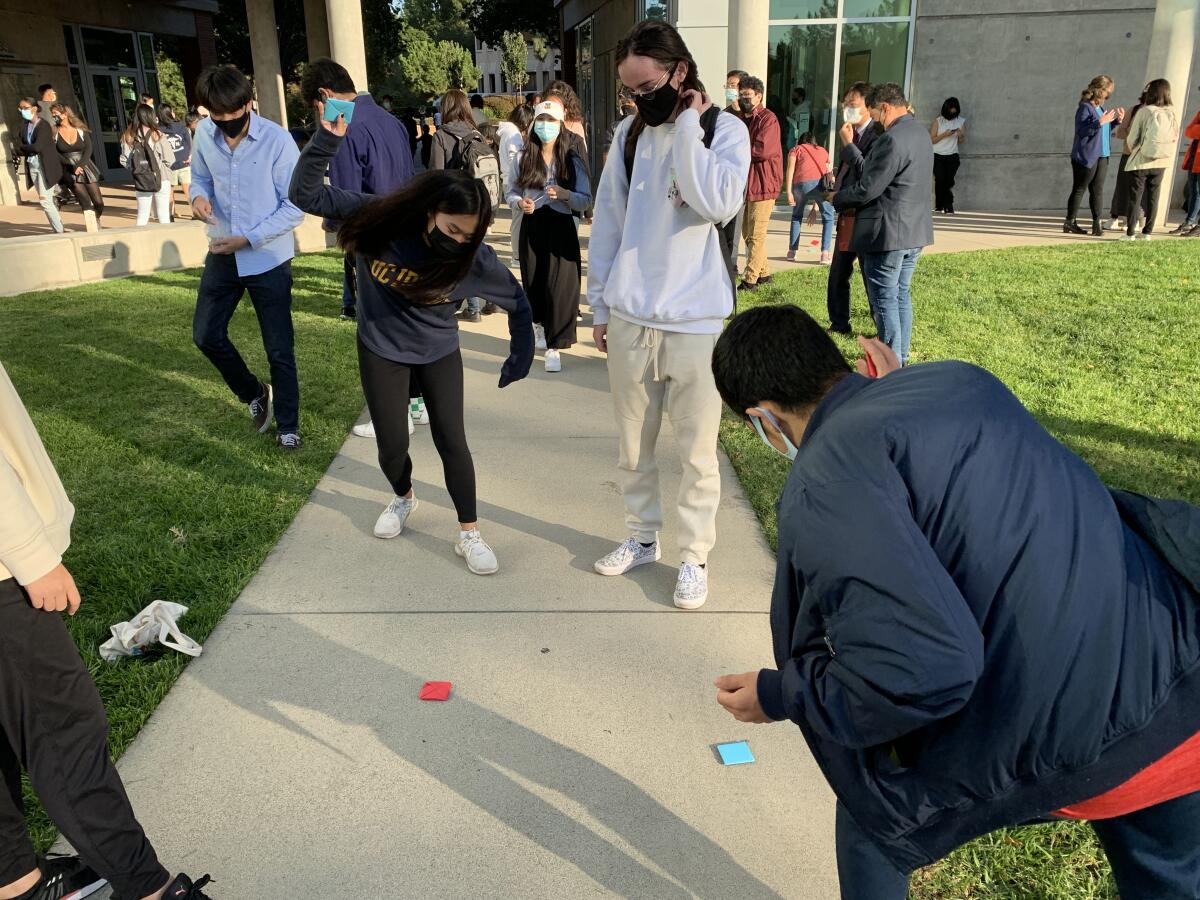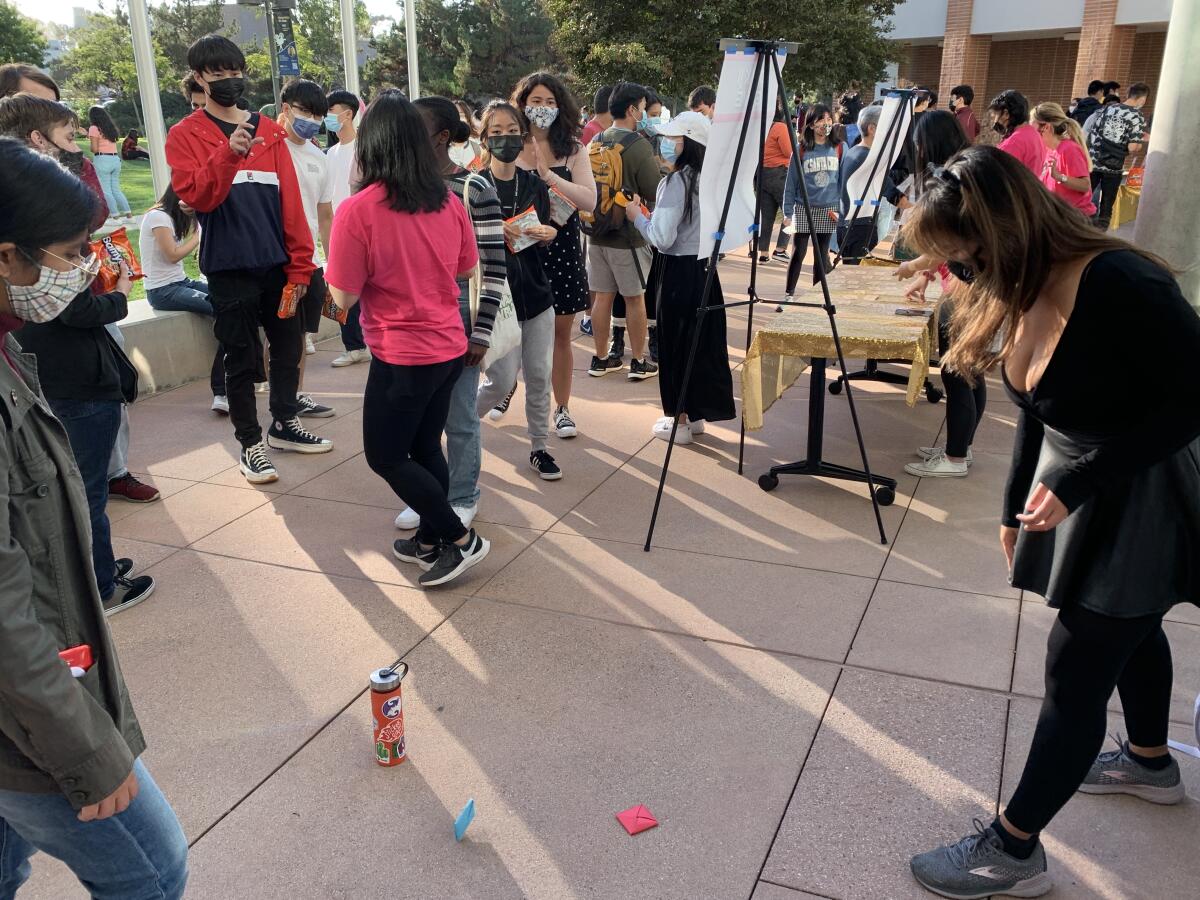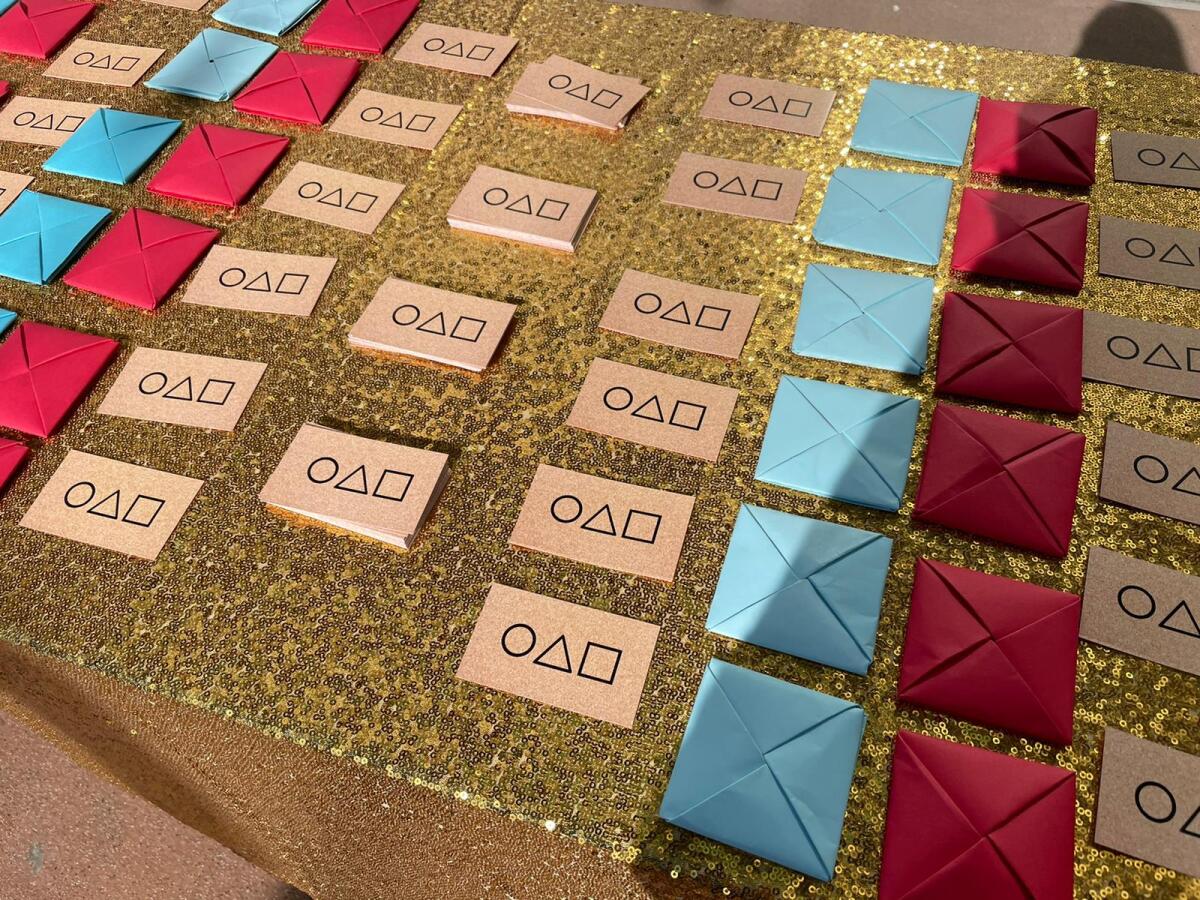UC Irvine brings ‘Squid Game’ to its campus

This is just a game, but a less fatal one than some viewers of Netflix’s “Squid Game” might expect.
The grounds of UC Irvine’s Humanities Gateway building Tuesday became a gathering place for students, faculty and staff, desperate and vying — not for billions in Korean won, but for a pack of Samyang ramen. Students were spread across the green, playing marbles or ddakji, a South Korean game played using folded paper tiles featured at the start of “Squid Game.”
The show, which premiered on Netflix in September, is reportedly the streaming service’s most watched series to date, is a survival drama in which 456 players in dire financial straits put their lives on the line and are in competition to win the 45.6 billion won prize by playing children’s games.
The event Tuesday drew on the show’s popularity, according to Jerry Won Lee, the event organizer and director of UCI’s Program in Global Languages and Communication.
Around 300 to 400 people are estimated to have stopped by to play a few of the games and attend a talk on the show provided by Kyung Hyun Kim, a UCI professor of east Asian languages and literature.

“I don’t really follow pop culture very much and I’m just generally not interested in it at all,” Lee said. “What I noticed was — even before I saw the show and I didn’t have any plans to see the show — that a lot of people were talking about the issues with the translations and the subtitles.
“Part of it is that some things cannot be translated from Korean into English. But other things…a lot of commentary about the bad subtitles and translations, so that’s when I became interested in the show and that’s what inspired me to watch it,” said Lee.
“I’m a professor of applied linguistics, so I’m very interested in every day, real world implications of language,” he said. “What I was noticing was there was this event or this show that was generating a lot of interest in language and it was getting everyday people interested in language and talking about language.”
Lee said that, along with what he feels is growing interest in Korean language and culture, there was the added benefit of Kim as a resource. The event came together a bit at the last minute with details finalized only a few weeks ago.

Lee went around with a couple of volunteers dressed as the man in the gray suit that invites show protagonist Seong Gi-hun to play a game of ddakji for money and eventually invites Gi-hun to play for higher stakes.
Lee and his volunteers handed out small business cards printed with three iconic shapes the Netflix show features on masks worn by characters and a url linking to the event, though Lee said some students were hesitant or scared.
He proudly admitted he beat every person he challenged at the game.
Lee said he hoped the event would bring the campus together through the games and a shared cultural interest because of how isolating the pandemic has been.
Organizers were dressed in hot pink shirts and offered supplies and directions on how to play Tuesday. They also held a prize drawing for small, clear piggy banks — again, reflecting a clear piggy bank on the show — filled with candies.
“One of the must asked questions it seems from every journalist is ‘Why do you think this is so popular?’ I have five minute answers and a minute answer, but I like to think about ... how South Korea’s always been a pretty important cultural ally to America and it’s been a pretty close partner for the last 75 years,” said Kim.
“For the purpose here, I’d like to point out that it really does get us back to childhood memories. The games are very germane and very specific to the local Korean games that we used to play,” said Kim.
Kim said that he immigrated from South Korea when he was about 10 and said he is close in age to show creator Hwang Dong-hyuk.
“Even though you may not be very aware of some of the specifics of the games, these being so simplistic and pastoral ... most people around the world would be able to relate to it very closely,” said Kim. “It has a way of reminding us that, ‘OK.’ The reasons we played these games 20 years ago, 30 years ago ... is not necessarily because you would produce winners and losers.
“A lot of times, that’s not the point of the game, but it’s just to have fun. A lot of times, we lose track of that and that’s part of the reason why I think these memories and games are important. That’s the pleasure of maybe looking at ‘Squid Game’ and realizing, ‘Hey, wait a minute. Maybe we lost something in the process.’”
All the latest on Orange County from Orange County.
Get our free TimesOC newsletter.
You may occasionally receive promotional content from the Daily Pilot.




